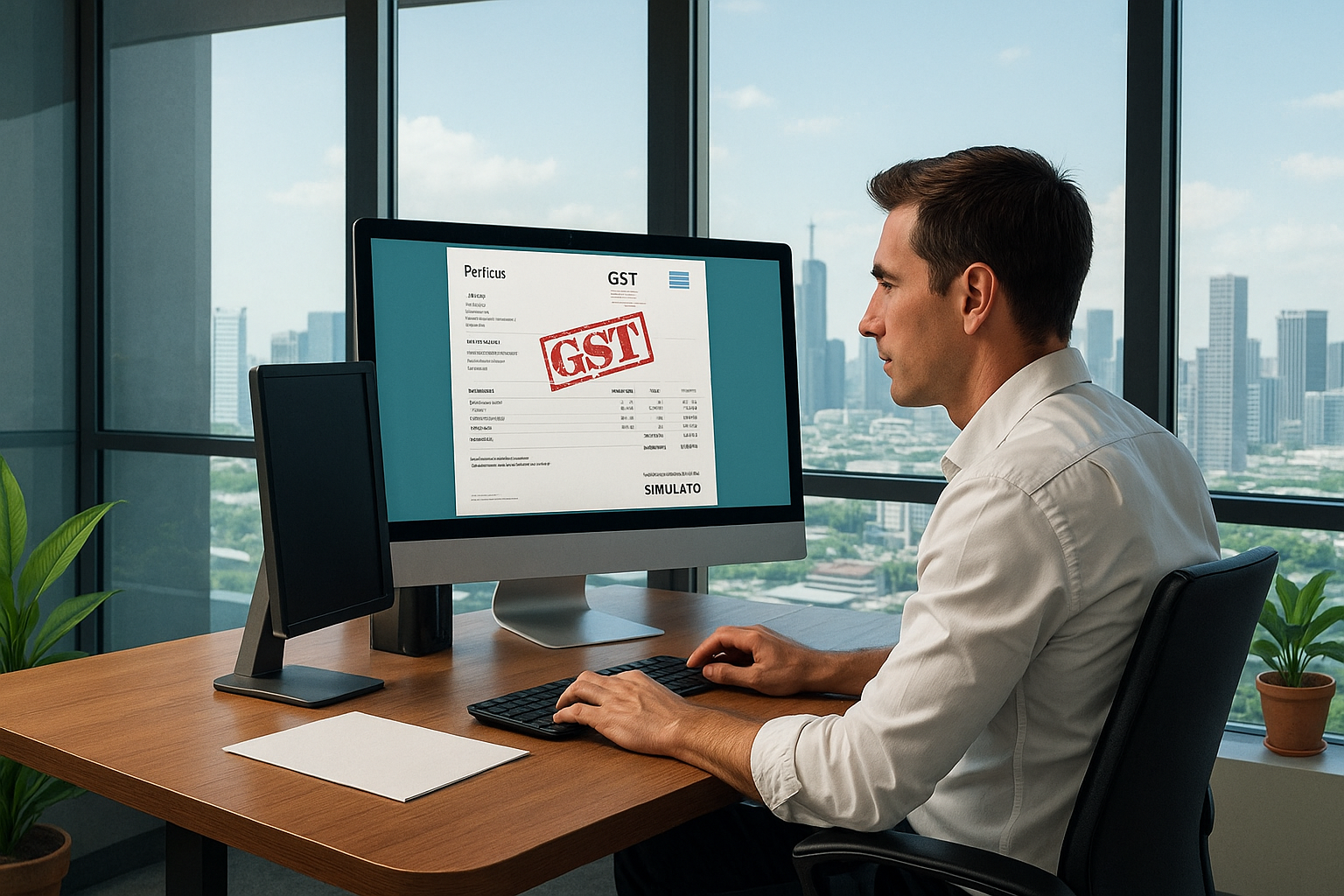The digital landscape in Singapore is evolving, and businesses are navigating a complex web of regulations, with e-invoicing compliance being a crucial aspect for GST-registered businesses.
The implementation of mandatory e-invoicing in Singapore aims to streamline business transactions and reduce errors for GST-registered businesses, promoting a more efficient and transparent invoicing process.
The clock is ticking for GST-registered businesses in Singapore to comply with the mandatory e-invoicing regulation or face severe consequences.
- Timely compliance is essential to avoid financial penalties and reputational damage.
- Simplified invoicing processes can lead to increased productivity and reduced administrative costs.
- Implementing electronic invoicing systems can help businesses stay ahead of the competition and adapt to evolving regulatory requirements.
Understanding Mandatory E-Invoicing Compliance For GST-Registered Businesses In Singapore
The implementation of mandatory e-invoicing in Singapore aims to streamline business transactions and reduce errors for GST-registered businesses, promoting a more efficient and transparent invoicing process.
This compliance requirement is crucial for businesses to avoid penalties and ensure seamless operations.
By adopting e-invoicing, businesses can improve their financial management and enhance customer satisfaction.
Navigating The Importance Of InvoiceNow-Ready Solutions For Streamlined Tax Invoices
Managing business finances can be overwhelming, especially when it comes to creating and sending tax invoices.
Understanding the importance of streamlined tax invoices can be a game-changer for businesses, allowing them to focus on what matters most – providing excellent products or services to customers.
With InvoiceNow-ready solutions, businesses can automate the invoicing process, reducing errors and increasing efficiency.
Benefits Of Adopting Peppol-Based E-Invoicing Standards For Simplified GST Returns
Companies in Singapore have successfully implemented Peppol-based e-invoicing, streamlining their financial processes and reducing errors.
This move has enabled them to focus on core business activities, resulting in increased productivity and efficiency.
For instance, a local SME adopted Peppol-based e-invoicing and saw a significant reduction in manual data entry errors, freeing up staff to concentrate on higher-value tasks.
Implementing Automated E-Invoicing Processes To Reduce Compliance Efforts And Audits
Implementing automated e-invoicing processes can help businesses in Singapore stay on top of their financial transactions.
Automated e-invoicing systems can provide real-time tracking and monitoring, allowing businesses to respond quickly to any discrepancies or issues.
As a result, businesses can reduce their compliance efforts and audits, freeing up resources to focus on growth and development.
Transmission Requirements For Invoice Data To IRAS Via The InvoiceNow Network Explained
To ensure seamless transmission of invoice data to the Inland Revenue Authority of Singapore (IRAS) via the InvoiceNow network, businesses must adhere to specific requirements.
The InvoiceNow network is a nationwide e-invoicing system that enables businesses to send and receive electronic invoices in a standardized format.
By leveraging this network, companies can streamline their invoicing processes, reduce errors, and improve overall efficiency.
Eligibility Criteria And Exemptions For GST-Registered Businesses Under The E-Invoicing Mandate
The e-invoicing mandate has introduced new requirements for GST-registered businesses in Singapore.
- Meeting the annual turnover threshold of SGD 1 million to be eligible for e-invoicing
- Registering for a unique entity number with the Inland Revenue Authority of Singapore
- Generating electronic invoices with a unique invoice reference number
- Transmitting e-invoices to the InvoiceNow platform for validation
- Storing electronic invoices for at least 5 years for audit purposes
Preparing For The Phased Adoption Of InvoiceNow In Singapore Starting November 2025
As businesses in Singapore prepare for the phased adoption of InvoiceNow, they can expect numerous benefits, including increased efficiency, reduced errors, and faster payment cycles.
InvoiceNow is a nationwide e-invoicing framework that will revolutionize the way businesses send and receive invoices.
A significant reduction in paperwork and manual data entry will lead to improved cash flow and stronger relationships with clients and suppliers.
Ensuring Security And Confidentiality Of Taxpayer Data Through IRAS’ E-Invoicing System
IRAS’ e-invoicing system has implemented robust security measures to protect taxpayer data.
In fact, traditional paper-based invoicing systems are more prone to errors and security risks.
IRAS’ e-invoicing system utilizes advanced encryption and secure authentication protocols to ensure the confidentiality and integrity of taxpayer data.
Registering For InvoiceNow And Obtaining A Unique Peppol ID For GST-Registered Businesses
Registering for InvoiceNow and obtaining a unique PEPPOL ID is a crucial step for GST-registered businesses in Singapore.
The PEPPOL ID allows for seamless communication between buyers and sellers, facilitating the exchange of invoices and credits.
By registering for InvoiceNow, businesses can also take advantage of the network’s security features, such as encryption and authentication, to protect their financial data.
As GST-registered businesses in Singapore continue to navigate the complexities of e-invoicing, it is essential to prioritize compliance to avoid penalties and ensure seamless operations.
By implementing a robust e-invoicing system, businesses can not only meet regulatory requirements but also streamline their financial processes and improve overall efficiency.
The effective implementation of e-invoicing compliance will undoubtedly play a vital role in shaping the future of business operations in Singapore.





Disclaimer: The information contained in this blog is for general information purposes only and is not intended as legal advice. While we endeavour to provide information that is as up-to-date as possible, Intime Accounting makes no warranties or representations of any kind, express or implied about the completeness, accuracy, reliability, suitability or availability with respect to the content on the blog for any purpose. Readers are encouraged to obtain formal, independent advice before making any decisions.